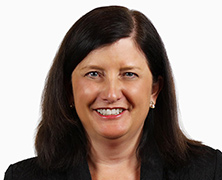Leadership in 2020
When I look back at the first half of 2020, I wonder at the sheer magnitude of the changes. COVID-19 has changed the way we live, interact with each other, and sell and support clients. It has been challenging, but it has also provided a unique opportunity to know and understand coworkers, clients, and their families in new ways. Amid this pandemic, the Black Lives Matter movement has led to a reexamination of personal stereotypes and prejudices, and work towards improving the systems and communities.
The world is quite literally a different place today than it was six months ago—and the need to drive a diverse and inclusive workplace has never been more crucial. The impact of diversity and inclusion has always been critical in the workplace—to create a community based on equality and to foster better decision making, increased productivity, and profitability—but this movement has pushed to address these issues with more urgency. A more varied and equitable workplace is needed to attract and keep talent, and to do that, move from simply talking about inclusion to actively implementing strategies to ensure teams have a broad mix of voices, and that those voices are heard.
My career has always been about pushing boundaries. I strive to build teams that leverage individual strengths and drive results through a cooperative motion. As a young woman navigating the workplace in the ’80s and ’90s, I knew the challenges and added pressures of being the first women to hold a seat at the table with my male peers. In a male-dominated tech industry, the challenge at times was simply an ability to be heard—not talked over or have my ideas ignored (and then later restated by one of the guys at the table as a “great idea”).
Have things improved? Yes, in some ways, but not nearly enough in others. I find that even with that personal knowledge and experience, my understanding of inclusion is still not complete. True understanding comes from listening to the experiences of others—listening to my son tell his story as he came out to me at age 23, listening to colleagues with vastly different backgrounds and challenges from mine, and listening to the voices being raised in protest today.
To succeed as leaders, as businesses, as a society, we need to not only accept the differences, but find ways to embrace and elevate these voices. Differing opinions challenge us as leaders—they also open the door to innovation and success, in 2020 and beyond.







